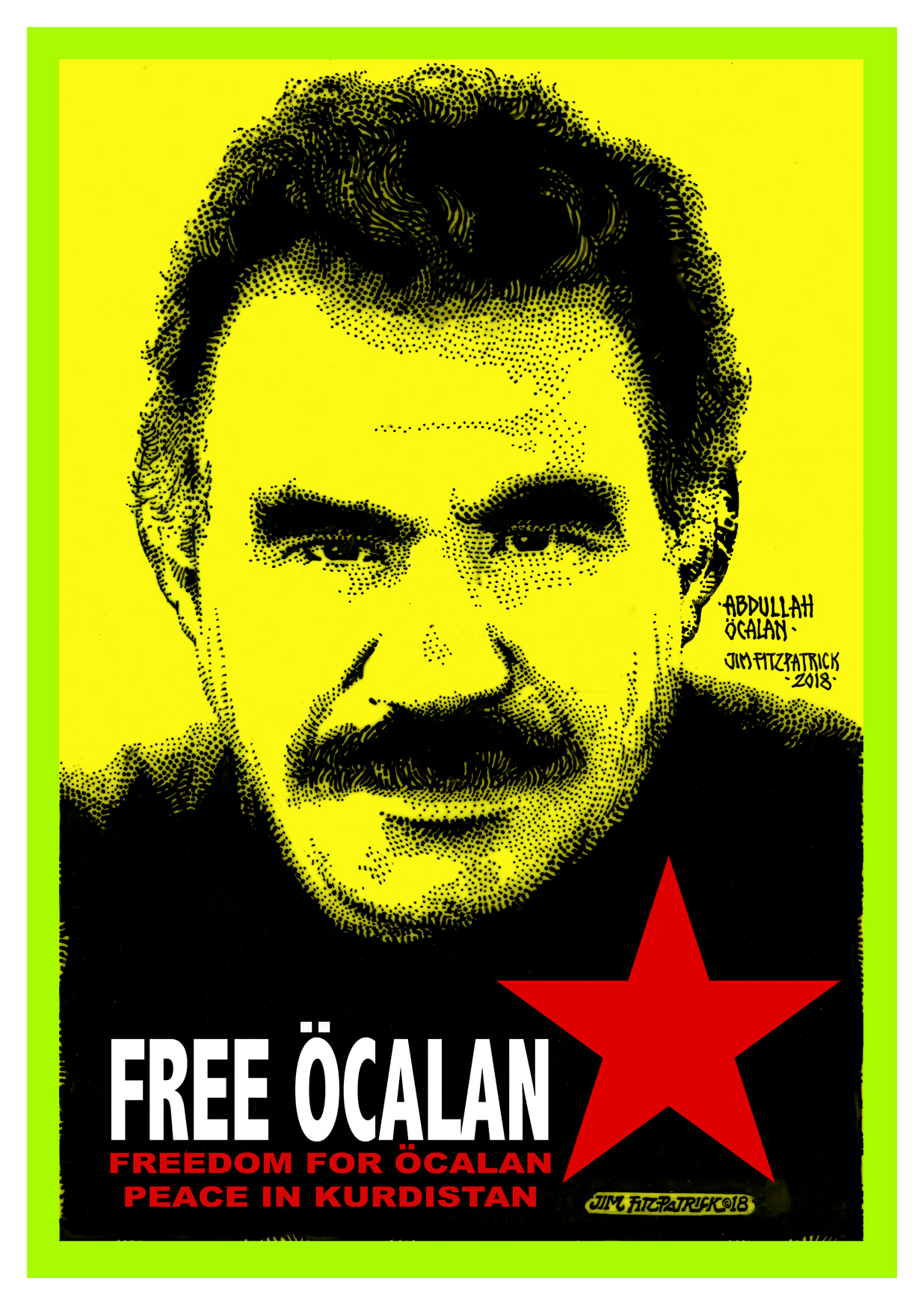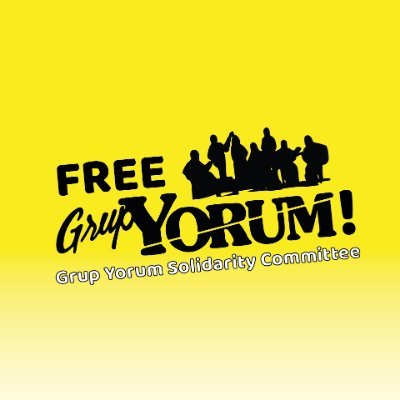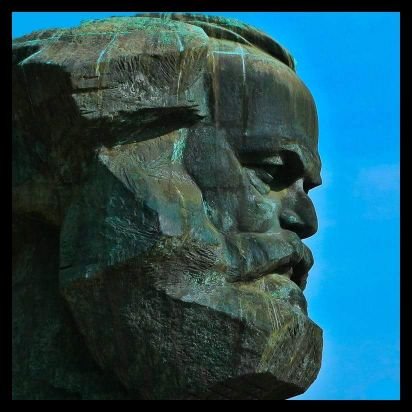«The Dialectic of Social and Ecological Metabolism: Marx, Meszaros, and the Absolute Limits of Capital»: Brett Clark and John Bellamy Foster
 One of the most remarkable aspects of Marxist scholarship in recent decades has been the recovery and development of Marx’s argument on social and ecological metabolism, which was crucial to his critique of political economy. Marx defined the labor process itself in metabolic terms. As he wrote in Capital: “Labour is… a process between man and nature, a process by which man… mediates, regulates and controls the metabolism between himself and nature.”1. Such a conception was two-sided. It captured both the social character of labor, associated with such metabolic reproduction, and its ecological character, requiring a continuing, dialectical relation to nature.
One of the most remarkable aspects of Marxist scholarship in recent decades has been the recovery and development of Marx’s argument on social and ecological metabolism, which was crucial to his critique of political economy. Marx defined the labor process itself in metabolic terms. As he wrote in Capital: “Labour is… a process between man and nature, a process by which man… mediates, regulates and controls the metabolism between himself and nature.”1. Such a conception was two-sided. It captured both the social character of labor, associated with such metabolic reproduction, and its ecological character, requiring a continuing, dialectical relation to nature.
The centrality of the concept of metabolism in Marx’s thought has been recognized for a long time, though its full significance has rarely been grasped until recently. For example, in the 1920s, Lukacs emphasized the “metabolic interaction with nature” through labor as a key to Marx’s dialectic of nature and society. He did not, however, go any further.2 Present-day attention to this theme has developed mainly along two lines: (1) Lukacs’s younger colleague Istvan Meszaros’s analysis of capital as a historically specific system of social metabolic reproduction, and (2) the work of the present authors and others who have built on Marx’s notion of a “metabolic rift” in the relation between nature and society.3 These two strands of Marxist analysis of the nature-society metabolism are dialectically linked. Meszaros’s work has been primarily concerned with issues of social metabolic reproduction, but this has nonetheless generated some of the most penetrating and prescient analyses of the ecological problem. From the other direction, recent Marxist work on ecological metabolism has converged with the dialectic of social metabolic reproduction, as outlined in Meszaros’s Beyond Capital,4 in delimiting the conditions of a sustainable future society. Meszaros, in particular, emphasizes that the qualitative changes in the social order demanded by ecology are indispensable elements of a wider set of qualitative challenges – such as the necessity of social control and substantive equality – defining the struggle for a socialism for the twenty-first century.
Marx and metabolism
The concept of metabolism was established within both chemistry and biology in the early nineteenth century for studying the chemical processes within organisms and also their biological operations. It captures the complex biochemical process of exchange, through which an organism (or a given cell) draws upon materials and energy from its environment and converts these by various metabolic reactions into the building blocks of growth. The metabolism concept allowed scientists to document the specific regulatory and relational processes that direct interchange within and between systems – such as organisms digesting organic matter. Marx incorporated this concept, but in a much broader context, into all of his major political-economic works from the 1850s on, using it to analyze the dialectical relationship between society and nature.5 By necessity there is a “metabolic interaction” between humans and the earth, as the latter supports life. Labor is “an eternal natural necessity which mediates the metabolism between man and nature, and therefore human life itself.”6 Through the labor process, humans transform the world and themselves, creating history in relation to the conditions of life.
From a metabolic perspective, the regeneration of ecosystems depends upon specific regulatory processes, shaped by complex historical relationships of interchange. Due to the interpenetration of society and nature, humans have the potential to alter the conditions of life in ways that surpass natural limits and undermine the reproduction of natural systems. In assessing actual metabolic interactions, Marx examined the constantly evolving set of needs and demands that arose with the advent and development of the capitalist system, which transformed the social interchange with nature, directing it toward the constant pursuit of profit. Marx highlighted this change in A Contribution to the Critique of Political Economy, noting that “the exchange of commodities is the process in which the social metabolism, in other words the exchange of particular products of private individuals, simultaneously gives rise to definite social relationships of production, into which individuals enter in the course of this metabolism.”7
The constant reproduction of capital on an ever-larger scale intensified the metabolic demands on nature, introducing new social relations and forms of socio-ecological exchange. It is here that Marx’s analysis throws light on the complex, developing forms of the estrangement and degradation of labor/nature in capitalist society. This is rooted, he tells us, in the alienation of human labor power (itself a natural agent) and, through this, of the entire human nature metabolism.
The soil nutrient cycle and the metabolic rift
Marx coupled his metabolic analysis with his critique of political economy, illuminating how industrialized capitalist agriculture created a metabolic rift, which reflected the unsustainable practices of the system as a whole. Drawing upon the work of the great chemist Justus von Liebig, Marx noted that the soil nutrient cycle necessitated the constant recycling of nitrogen, phosphorus, and potassium, as plants absorbed these nutrients. Plant and human wastes in precapitalist societies were generally returned to the soil as fertilizer, helping replace lost nutrients. But the enclosure movement and the privatization of land that accompanied the advent of capitalism created a division between town and country, displacing much of the population from the land and expanding the urban population. Intensive agricultural practices were used to increase yields. Food and fiber – along with soil nutrients – were shipped hundreds or even thousands of miles to distant urban markets. The essential soil nutrients accumulated as waste, which polluted cities and rivers. These practices undermined the natural conditions that were necessary for reproduction of the soil. Marx pointed out that capitalist agriculture “disturbs the metabolic interaction between man and the earth, i.e. it prevents the return to the soil of its constituent elements consumed by man in the form of food and clothing; hence it hinders the operation of the eternal natural condition for the lasting fertility of the soil.”8 In other words, it was a robbery system exhausting natural wealth for the sake of private profit.
Large-scale, mechanized agriculture and long-distance trade intensify the metabolic rift in the soil nutrient cycle. Marx indicated that capital creates “the universal appropriation of nature,” as it attempts to subject natural laws and systems to the whims of accumulation. “It is destructive towards all of this [i.e., nature], and constantly revolutionizes it, tearing down all the barriers which hem in the development of the forces of production, the expansion of needs, the all-sided development of production, and the exploitation and exchange of natural and mental forces.” Intensive, industrial agricultural practices are employed to sustain and increase production, as well as to overcome the limitations imposed by the nutrient cycle. Marx warned that the incorporation of industry into agriculture supplied the latter “with the means of exhausting the soil,” hastening the rate of environmental degradation.9
In the mid-nineteenth century, intensive agricultural production in England and other core nations contributed to the global metabolic rift, as millions of tons of guano and nitrates – as well as various agricultural goods – from Peru and Chile were transferred to the North to enrich depleted soils. Imported labor from China (“coolies”) worked under harsh conditions extracting guano from islands off the coast of Peru. These “beasts of burden” choked on guano dust, were physically beaten, and lived short lives to enrich the soils of the global North.10 The international fertilizer trade ushered in decades of civil unrest, war, debt, and global asymmetries in the international hierarchy of nations. The Haber-Bosch process, which allowed for the fixation of nitrogen to produce ammonia on an industrial scale, facilitated the development of artificial fertilizers by capitalists in the global North, increasing the industrialization of agriculture, without attending to the source of the metabolic rift in agriculture. This shift in the socioecological relationship introduced additional ecological problems, such as the accumulation of nutrients in waterways, which contributes to the formation of dead zones.
Capital’s insatiable appetite is reinforced by the domination of exchange value over use value and also by competition and by the concentration and centralization of capital. The impulse of incessant accumulation amplifies the social metabolism of society, increasing the exploitation and demands placed on nature. New technologies are used above all to expand production and to lower labor costs. Capital’s social metabolism is increasingly separated from the natural metabolism, producing various metabolic rifts and forms of ecological degradation that threaten to undermine ecosystems.
Part of revealing the inherent destructiveness of capital is to lay bare the social relations of the system, emphasizing the possibility and necessity of social transformation in the mode of production. Marx argued that socialism offered the opportunity to pursue genuine human needs. At the same time, he emphasized that the transformation of property relations must also entail a systematic reorganization of the interchange with nature. He argued that a society of associated producers was necessary to “govern the human metabolism with nature in a rational way, bringing it under their collective control instead of being dominated by it as a blind power; accomplishing it with the least expenditure of energy and in conditions most worthy and appropriate for their human nature.”11 An ecology that would maintain the earth (as Marx put it) for “succeeding generations” would thus require transition to a new social order – presenting human civilization with its greatest and most urgent challenge.12
The necessity of social control
The centrality of the human-social relation to nature, and the fact that it is mediated by an alienated form of labor that generates the pollution inherent in social-environmental life under capital, is graphically illustrated in Meszaros’s Marx’s Theory of Alienation, winner of the 1971 Isaac Deutscher Prize. In his Deutscher Prize lecture of that same year, Meszaros presented his emergent understanding of “the structural crisis of capital” as well as a powerful ecological critique that anticipated (but on far more radical foundations) the Limits to Growth argument unveiled by the Club of Rome in 1972.13 He criticized the advocates of capitalist development for their shortsighted promotion of the US model of “high mass consumption,” pointing out that this approach was oblivious to natural limits, not to mention absurd given the inner dynamics of an economic system that generated wealth through the immiseration of most of humanity. He stressed that this pattern could not be replicated throughout the world without causing immense environmental degradation and exhausting “the ecological resources of our planet.”14
The ecological and social challenges that confront us are often minimized as the logic of capital goes unquestioned and various reforms are put forward (such as improving energy efficiency via market incentives) under the assumption that the system can be tamed to accommodate human needs and environmental concerns. Such positions fail to acknowledge that the structural determinations of capital will inevitably grind onwards, threatening to undermine the conditions of life, unless systematic change is pursued to eradicate the capital relation entirely. It is here that Meszaros presents a scathing critique of capital and its persistently destructive proclivities – all the while focusing on the necessity of a new social order.
Venezuelan President Hugo Chavez has referred to Meszaros as the “Pathfinder of Socialism,” emphasizing the importance of Beyond Capital for proposing a theory of transition.15 While Meszaros’s work is firmly rooted in Marx’s critical method, it stands on its own as absolutely original and foundational. In Beyond Capital (as well as his other books), he establishes the basis for envisioning a future beyond the system of capital, a critique beyond Marx’s Capital, and a radical analysis for the twenty-first century. He conceives of the capital system as a “social metabolic order” that permeates all aspects of society and that activates “absolute limits,” making this the most dangerous period of human history. He highlights the failure of post-capitalist societies to eradicate capital in its totality. He illuminates the forces that are deepening the structural crisis of capital and the necessity of social control for a genuine socialist transition. He articulates how both an ecologically sustainable social order and substantive equality are essential for human development. Without both of these components the survival of the human species remains threatened – whether from world war or from ecological collapse.
Meszaros presents capital as a historically specific system of “social metabolic reproduction.” Environmental concerns are not an isolated issue. Instead they are intimately tied to the social metabolic order, which requires confronting the question of social control. The capital system, however, as Meszaros points out, is innately “uncontrollable.” As a social metabolic system characterized by competition and monopoly, it is driven constantly to accumulate capital, which concentrates social, economic, and political power. It imposes a particular form of rationality and interchange between human beings and nature, whereby all relationships are assessed in terms of “productive viability” to facilitate expansion of the system.16 The logic of capital is superimposed on everything, be it health care, education, manufacturing, or the environment. Exchange value becomes the universal measure, as capitalists attempt to maximize profit. Capital is incapable of “self sufficiency”; it must constantly be renewed, pushing outwards, revolutionizing its relations of production, devouring more labor to capture surplus value, freely appropriating nature and subsuming the world to the accumulation process.17
Given the distorted accountancy of capital as a system, which sees exchange value but not use value, a “universal value-equation” dominates, “obliterating substantive incommensurability everywhere.” In other words, money serves as a universal medium of exchange, which extends commodity fetishism, erasing the social and natural processes – such as the time it takes for labor power to be reproduced or for trees to grow after being cut – whereby goods are produced for the market. Public wealth (the sum of use values, which includes natural wealth) is exploited and diminished for the sake of increasing private riches. Capital is predicated on constant growth, so it attempts to increase its turnover rate in order to accelerate accumulation. Given that exchange value is the exclusive focus, the social metabolic order of capital attempts to transcend whatever social or natural limits it confronts. As Meszaros puts it, “For the first time ever in history human beings have to confront a mode of social metabolic control which can and must constitute itself – in order to reach its fully developed form – as a global system, demolishing all obstacles that stand in the way,” regardless of “how devastating the consequences.”18 Its success is solely determined by the extent to which it can accumulate capital. Like Marx in the Grundrisse, Meszaros warns that capital recognizes barriers that can be surmounted but not boundaries in the sense of absolute limits. It therefore incorporates in its inner logic a tendency to overshoot all objective limits, including the conditions for life.19
Instead of the substantive equality necessary for universality in the social world, capitalism has produced inequality, unemployment, exploitation, human misery, war, and environmental degradation. The putative democracy offered to the world comes at the cost of disenfranchising the majority of the world’s population through alienating work environments, the ever-present threat of violence for participating in political opposition, and the undermining of subsistence production and the natural infrastructure.
Meszaros stresses that the reproduction of the capitalist system can only be secured through ever more destructive forms that further impoverish the world’s population. Increasingly, consumption and destruction are coupled within the social metabolic order of capital, as destructive forces and wastefulness, such as the military-industrial complex, are pushed to the forefront to sustain an economic system that cannot be integrated politically on the global plane. Global war, even at the expense of mutual destruction, remains a means to secure the dominant position within an international system of competition.20 Furthermore, the profit-driven system is incapable of effectively regulating the social metabolism between human society and nature, as capitalist production intensifies its demands on nature and the consequent ecological destruction – whose effects will outlast the transformation of the system.
In “The Necessity of Social Control,” Meszaros highlights the culminating and deepening crisis. He explains that humanity must overcome the fragmentation of society and find unity if it is to survive. Here he focuses on the relation of ecological degradation to capital’s uncontrollable logic of waste and destruction:
Another basic contradiction of the capitalist system of control is that it cannot separate “advance” from destruction, nor “progress” from waste – however catastrophic the results. The more it unlocks the powers of productivity, the more it must unleash the powers of destruction; and the more it extends the volume of production, the more it must bury everything under mountains of suffocating waste. The concept of economy is radically incompatible with the “economy” of capital production which, of necessity, adds insult to injury by first using up with rapacious wastefulness the limited resources of our planet, and then further aggravates the outcome by polluting and poisoning the human environment with its mass-produced waste and effluence.
Ironically, though, again, the system breaks down at the point of its supreme power; for its maximum extension inevitably generates the vital need for restraint and conscious control with which capital production is structurally incompatible. Thus, the establishment of the new mode of social control is inseparable from the realization of the principles of a socialist economy which centre on a meaningful economy of productive activity: the pivotal point of a rich human fulfillment in a society emancipated from the alienated and reified institutions of control.21
“The issue,” Meszaros makes clear, “is not whether or not we produce under some control, but under what kind of control; since our present state of affairs has been produced under the ‘iron-fisted control’ of capital which is envisaged, by our politicians, to remain the fundamental regulating force of our life also in the future.”22 Politics must be emancipated from the power of private capital, in order for people to gain social control over their productive lives – which includes the social metabolism with nature – and over human development. Social control is a necessary component of pursuing a transformation in the interchange with nature, vanquishing the reduction of this relationship to exchange value and alienation from nature. The dissemination of knowledge about ecosystems, the protection of the conditions of life, and the regulation of the interpenetration of nature and society are dependent on social control.
The absolute ecological limits of capital
The necessity of social control is all the more vital when we consider what Meszaros calls the absolute limits of capital, especially in regard to the emerging ecological crisis. All social metabolic orders have “intrinsic or absolute limits which cannot be transcended” without forcing a qualitative transformation to a new mode of control.23 In such a situation, it becomes an imperative to transition to a new social metabolic order, but just because this is necessary does not mean that it will happen. Meszaros warns that even though the absolute limits of capital may be activated, capital will not give up its expansive thrust.
The reality of this situation is evident in the culminating environmental crisis. The Living Planet Report 2008 indicates that the world faces a “looming ecological credit crunch.” Natural resources are being consumed “faster than they can be replenished.” Ecosystems are being taxed and degraded due to excessive demands and pollution, threatening to push them to the point of collapse. The loss of habitat is causing cascading extinctions throughout nature, as part of the “sixth extinction.” Recent studies have revealed that no area of the world’s oceans “is unaffected by human influence.” Coral reefs and continental shelves have suffered severe deterioration. Overfishing and organic pollution from agricultural runoff are driving the collapse of many aquatic ecosystems. The accumulation of carbon dioxide in the atmosphere has raised the ocean temperature and caused a drop in the pH of surface waters, making them more acidic, harming reef-building species. James Hansen, a leading US climatologist and director of NASA’s Goddard Institute for Space Studies, warns that global climate change today constitutes a “planetary emergency,” as the accumulation of carbon dioxide threatens to set in motion positive feedbacks that will fundamentally change conditions on Earth. Human society, controlled by a rapacious system of accumulation, is in the process of ecological overshoot, exceeding the earth’s “carrying capacity.” The global footprint has surpassed the ability of the planet to regenerate by over 30 percent.24
The failure to act in the face of an environmental crisis of such scope should not come as a surprise given the union between politics and economics. Ironically, the destructive uncontrollability of capital prolongs the system’s capability to grow, as it increases the prospects of expanding private riches, profiting from scarcity and degradation. As Meszaros indicates, “neither the degradation of nature nor the pain of social devastation carries any meaning at all for its system of social metabolic control when set against the absolute imperative of self-reproduction on an ever-extended scale.”25
Surpassing the absolute ecological limits – to the point that the whole world is being run down – holds grave implications for the future of humanity. When the social metabolic order of capital confronts limits, “its destructive constituents come to the fore with a vengeance, activating the spectre of total uncontrollability in a form that foreshadows self-destruction both for this unique social reproductive system itself and for humanity in general.”26 It attempts to push ever forward, further undermining the vital conditions of existence – so long as there is a means to extend the accumulation of capital. The climate debate remains caught in the death throes of capital, as corporations, on one hand, clamor to present themselves as the solution to environmental degradation – a solution that has as its operative principle the defense of the existing social metabolic order, which must remain unchanged in all essential respects – and on the other hand, work to undermine even modest, utterly insufficient, political action to address climate change.27
Meszaros stresses that the overthrow of capitalist institutions is only the first step of a revolutionary society. The logic of capital “must be eradicated from everywhere” because of how “deeply embedded” it is in every pore of society, including the “social metabolic process.” A long, difficult struggle for social transformation must be undertaken in order to reorganize labor relations and conceptions of production, which at the same time will mend the rift between nature and society. Only the totality of labor in opposition to capital will provide the means for controlling the social metabolism of life. Short of this, “the uncomfortable truth of the matter is that if there is no future for a radical mass movement in our time, there will be no future for humanity,” because “the extermination of humanity is the ultimate concomitant of capital’s destructive course of development.”28
Waiting and wishing for social change will not eliminate exploitation, social inequalities, and environmental destruction. Fortunately, the activation of capital’s absolute limits, including its absolute ecological limits, coincides with new sources and strategies of mass-based revolt. In The Structural Crisis of Capital, Meszaros quotes Chavez as stating: “I believe that it is not given to us to speak in terms of future centuries… we have no time to waste; the challenge is to save the conditions to life on this planet, to save the human species, to change the course of history, to change the world.”29
Elementary triangles: a sustainable system of social metabolic reproduction
The path to a sustainable society thus necessitates social control over the social metabolic order of reproduction, which encompasses all realms of productive life, including what is produced and how it is produced, as well as social relations with nature. Marx argued that a society of associated producers must live within the “metabolism prescribed by the natural laws of life itself”30 in order to sustain the vital conditions of existence for present and future generations. At the same time, this approach would allow ecosystems to continue to function and provide the various ecological services that enrich the world and support other life forms.
Here there is a necessary synthesis between Marx and Meszaros, in formulating a conception of transition to a sustainable system of social metabolic reproduction. Both substantive equality and ecological sustainability are the cornerstones of a society freed from the dictates and logic of capital. Substantive equality helps overcome the divisions, the social isolation, and the alienation that characterize capitalist relations. Ecological sustainability involves transcending alienation from nature.
Influenced by Marx’s conception of a society of associated producers and Meszaros’s theory of transition, Hugo Chavez has proposed a new socialism for the twenty-first century rooted in the “elementary triangle of socialism.” This roadmap to a new society consists of: 1) social ownership; 2) social production organized by workers; and 3) satisfaction of communal needs. Social control serves as the root basis for this transformation to a socialist metabolic order. Michael Lebowitz explains that if socialism fails to embody these three issues simultaneously, it will not take hold and will cease to be sustainable.31
It is clear that this elementary triangle of socialism is dialectically interconnected with what could be called the elementary triangle of ecology, as prescribed by the natural laws of life: 1) social use, not ownership, of nature; 2) rational regulation by the associated producers of the metabolism between human beings and nature; and 3) the satisfaction of communal needs – not only of present but also of future generations. Marx insisted that human development must be rooted in sustainable human relations with the material world, demanding constant vigilance and a scientifically informed public.32 As a result, the two triangles must become one, allowing “an entire society… to bequeath [the earth] in an improved state to succeeding generations.”33
In gaining social control over the social metabolic order, Meszaros emphasizes, we must eradicate the capital relation, constructing an entirely new foundation for society. This radical reorientation toward substantive equality is particularly evident today in the struggles associated with the Bolivarian Revolutions in Venezuela and elsewhere in Latin America. In Venezuela, a historic transformation is underway, as a nation and its people work to transition to socialism. This is a process, whereby the logic of capital must be uprooted, and the logic of a sustainable, human society sown. Major strides have been taken to establish communal councils, to encourage cooperatives, to create worker councils, to increase the education of workers, to train workers in co-management and self-management, and to extend social control over production. These steps are part of an effort to empower and invest people in the social transformation, which by necessity, as Chavez explains, also facilitates “the construction of the new man, of the new woman, of the new society.” Oil revenues have funded many projects, including programs to increase health care and education, within Venezuela. As part of the revolutionary process, an attempt is being made to diversify internal production, in order to reduce the need to import basic necessities. Here production will be focused on “stimulating the full development of human beings.”34 These transitions may open up more revolutionary possibilities as a new society is created. In January 2010, Chavez announced that Venezuela must move beyond the oil-rentier development model as part of its transition. What this will mean in practice only time will tell. Nevertheless, peak oil may force a transformation to a less resource-extractive society. The more Venezuela has moved towards food self-sufficiency and ecological sustainability the easier such a transformation will be.35
Significant attempts to alter the human metabolism with nature are being made through agrarian reform. Throughout much of the twentieth century, Venezuela’s agricultural sector was dismantled, and the rural population migrated to cities. The nation became dependent on food imports. As part of the effort to establish a social economy – which is focused on use values – and to pursue human development, the Bolivarian Revolution has committed itself to pursuing “food sovereignty.” Under this framework, small farmers rather than agribusiness have control over food production and distribution. This change helps reduce alienation from nature. Education has become integral to the production process, as the farmers and agricultural centers are increasingly concerned with the natural conditions under which food is produced. Agro-ecological approaches are being studied and applied, in order to build up the soil and to work within natural cycles. Farmers are planting diverse traditional crops, saving seeds, and collecting compost. The government is supporting these efforts by extending credit to those who use them. Like Cuba, Venezuela has created research facilities to develop “biological pest control and fertilizers” to eliminate the use of pesticides. The Law for Integrated Agricultural Health (2008) mandates that the use of “toxic agrochemicals” be phased out, in favor of agro-ecological practices.36 Here the elementary triangles of socialism and ecology intersect as the revolutionary process continues to take root.
For Meszaros the creation of a more ecological relation for humanity is not a separate problem, but an indispensable, even defining (though not all-encompassing) part of the struggle to create a qualitatively new social order dedicated to the realization of genuine human needs. As he writes in The Challenge and Burden of Historical Time, “ecology… is an important but subordinate aspect of the necessary qualitative redefinition of utilizing the produced goods and services, without which the advocacy of humanity’s permanently sustainable ecology – again, an absolute must – can be nothing more than a pious hope.”37
In this universal, dialectical view, the problem of constructing a viable system of social and ecological metabolism becomes – unlike in the Limits to Growth argument (which targets the abstract commitment to “growth” rather than the capital system itself) – a central aspect of a wide-ranging revolutionary process. This process demands for its completion social control: wresting the determining power away from the agency of capital and placing it back in the sovereign population. It is a matter of “putting to humanly commendable and rewarding use the attained potential of productivity, in a world of now criminally wasted material and human resources.”38 A sustainable society is a qualitatively different one, characterized by substantial equality, which allows the notion of ecology to expand universally, beyond the usual, alienated, reductionist conception. The rift in the ecological metabolism requires that the rift in the social metabolism be overcome.
Notes
1. Karl Marx, Capital, vol. 1 (New York: Vintage, 1976), 283.
2. Georg Lukacs, A Defense of “History and Class Consciousness”: Tailism and the Dialectic (London: Verso, 2000), 96. See also John Bellamy Foster, “The Dialectics of Nature and Marxist Ecology,” in Bertell Ollman and Tony Smith, eds., Dialectics for the New Century (New York: Palgrave Macmillan, 2008), 50–82.
3. See the following for important discussions and applications of metabolic analysis: Paul Burkett, Marx and Nature (New York: St. Martin’s Press, 1999); Brett Clark and Richard York, “Carbon Metabolism: Global Capitalism, Climate Change, and the Biospheric Rift,” Theory and Society 34 (2005): 391–428; Rebeca Clausen and Brett Clark, “The Metabolic Rift and Marine Ecology: An Analysis of the Oceanic Crisis within Capitalist Production,” Organization & Environment 18 (2005): 422–444; John Bellamy Foster, “Marx’s Theory of Metabolic Rift: Classical Foundations for Environmental Sociology,” American Journal of Sociology 105 (1999): 366–405; John Bellamy Foster, Marx’s Ecology (New York: Monthly Review Press, 2000); Philip Mancus, “Nitrogen Fertilizer Dependency and Its Contradictions: A Theoretical Exploration of Social-Ecological Metabolism,” Rural Sociology 272 (2007): 269–288; Jason W. Moore, “Environmental Crises and the Metabolic Rift in World-Historical Perspective,” Organization & Environment 13 (2000): 123–157.
4. Istvan Meszaros, Beyond Capital (New York: Monthly Review Press, 1995).
5. Alfred Schmidt argued that Marx was influenced by Jakob Moleschott’s conception of metabolism. While it is true that Marx was aware of Moleschott’s usage and attended lectures by him, the term metabolism was already established in the literature before Moleschott used it. For years, Marx studied Liebig’s agricultural work closely and in Capital he employed the concept in a similar fashion. See Foster, Marx’s Ecology, 161–62; Foster, “Marx’s Theory of Metabolic Rift,” 381; Alfred Schmidt, The Concept of Nature in Marx (London: New Left Books, 1971).
6. Karl Marx, Texts on Method (Oxford: Basil Blackwell, 1975), 209; Marx, Capital, vol. 1, 133, 283, 290, 637–38.
7. Karl Marx, A Contribution to the Critique of Political Economy (New York: International Publishers, 1972), 51–2.
8. Marx, Capital, vol. 1, 637.
9. Karl Marx, Grundrisse (New York: Penguin Books, 1993), 409–410; Karl Marx, Capital, vol. 3 (New York: Penguin Books, 1991), 950; Marx, Capital, vol. 1, 638.
10. Brett Clark and John Bellamy Foster, “Ecological Imperialism and the Global Metabolic Rift: Unequal Exchange and the Guano/Nitrates Trade,” International Journal of Comparative Sociology 50 (2009): 311–334.
11. Marx, Capital, vol. 1, 637–38; Marx, Capital, vol. 3, 959.
12. Marx, Capital, vol. 3, 911.
13. Istvan Meszaros, Marx’s Theory of Alienation (London: Merlin Press, 1970); Istvan Meszaros, The Necessity of Social Control (London: Merlin Press, 1971), later published as a chapter in Beyond Capital; Donella Meadows et al., The Limits to Growth (New York: Universe Books, 1972). For Meszaros’s critique of the Limits to Growth view see Istvan Meszaros, The Challenge and Burden of Historical Time (New York: Monthly Review Press, 2008), 275–78.
14. Meszaros, Beyond Capital, 874–75.
15. Chavez first called Me´szaros “Pathfinder” (Senalador de caminos) – referring to his role in illuminating the transition to socialism – in an inscription that he wrote in a copy of Simon Rodrıguez’s Collected Works, which he gave to Meszaros at a dinner in the Miraflores Palace on September 10, 2001. On the same occasion they discussed Meszaros’s Beyond Capital, with Chavez exhibiting the copious notes he had made in his copy.
16. Meszaros, Beyond Capital, 41.
17. Meszaros, Beyond Capital, 44, 170–171; Marx, Capital, vol. 1, 342.
18. Meszaros, Beyond Capital, 45–46; Meszaros, The Challenge and Burden of Historical Time; Meszaros, The Structural Crisis of Capital (New York: Monthly Review Press, 2009). See also, John Bellamy Foster and Brett Clark, “The Paradox of Wealth: Capitalism and Ecological Destruction,” Monthly Review 61, no. 6 (November 2009): 1–18; Michael A. Lebowitz, Build It Now (New York: Monthly Review Press, 2006).
19. On the barriers/boundaries dialectic, which Marx inherited from Hegel and applied to capital, and which Meszaros developed further, see John Bellamy Foster, “Marx’s Grundrissse and the Ecological Contradictions of Capitalism,” in Marcello Musto, ed., Karl Marx’s Grundrisse (New York: Routledge, 2008), 93–106.
20. Meszaros, The Challenge and Burden of Historical Time, 99.
21. Meszaros, Beyond Capital, 893–94 (italics in all quotations are in the original).
22. Ibid., 876–77, 881.
23. Ibid., 142.
24. World Wildlife Fund, Living Planet Report 2008,
http://assets.panda.org/downloads/living_planet_report_2008.pdf, 1-4; Benjamin S. Halpern et al., “A Global Map of Human Impact on Marine Ecosystems,” Science 319 (2008): 948–952; Gerardo Ceballos and Paul R. Ehrlich, “Mammal Population Losses and the Extinction Crisis,” Science 296 (2002): 904–907; United Nations Environment Programme, Global Environment Outlook 1 (Sterling, VA: Earthscan, 1997); James Hansen, “Tipping Point,” in Eva Fearn, ed., State of the Wild 2008–2009 (Washington, DC: Island Press, 2008), 6–15; Intergovernmental Panel on Climate Change, Climate Change 2007: The Physical Science Basis (Cambridge: Cambridge University Press, 2007).
25. Meszaros, Beyond Capital, 47, 173–174.
26. Ibid., 44.
27. Richard York, Brett Clark, and John Bellamy Foster, “Capitalism in Wonderland,” Monthly Review 61, no. 1 (May 2009), 4–5.
28. Meszaros, Challenge and Burden, 149, 252; Meszaros, Socialism or Barbarism (New York: Monthly Review Press, 2001), 97–107.
29. Meszaros, The Structural Crisis of Capital, 140.
30. Meszaros, Beyond Capital; Gretchen C. Daly, ed., Nature’s Services (Washington DC: Island Press, 1997); Marx, Capital, vol. 3, 283, 949, 959.
31. Michael Lebowitz, “The Path to Human Development,” Monthly Review 60, no. 9 (February 2009): 41–63.
32. See John Bellamy Foster, The Ecological Revolution (New York: Monthly Review Press, 2009), 32–35.
33. Marx, Capital, vol. 3, 911; see also Paul Burkett, “Marx’s Vision of Sustainable Human Development,” Monthly Review 57, no. 5 (2005): 34–62.
34. Michael Lebowitz, “New Wings for Socialism,” Monthly Review 58, no. 11 (2007): 34–41; Michael Lebowitz, “An Alternative Worth Struggling For,” Monthly Review 60, no. 5 (2008): 20–21; Lebowitz, Build It Now.
35. Prensa Latina, “Chavez Stresses the Importance of Getting Rid of the Oil Rentier Model in Venezuela,” MRzine, http://mrzine.org (January 11, 2010).
36. Christina Schiavoni and William Camacaro, “The Venezuelan Effort to Build a New Food and Agriculture System,” Monthly Review 61, no. 3 (2009): 129–141.
37. Meszaros, Challenge and Burden, 292.
38. Ibid., 278.
________________________________


























